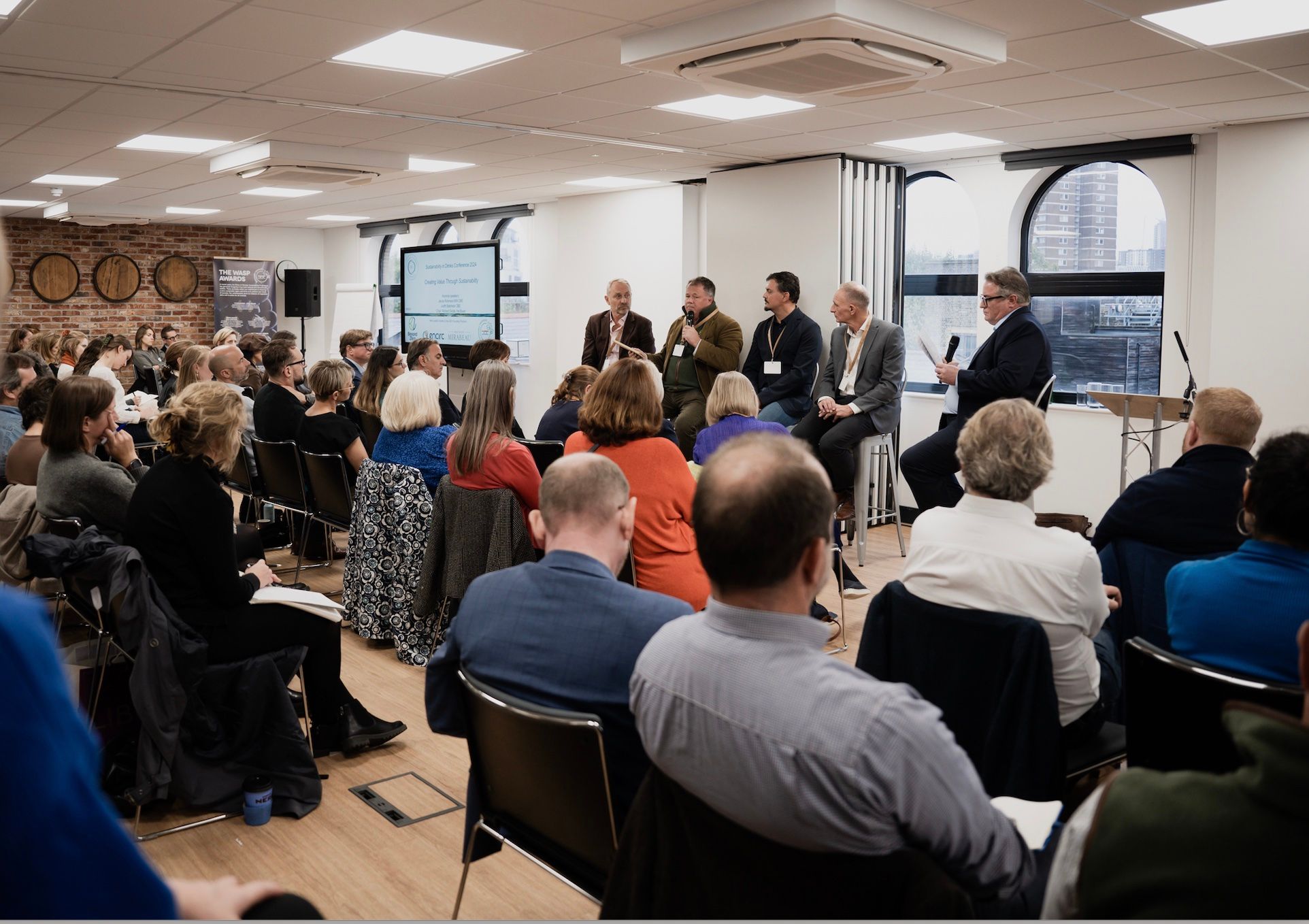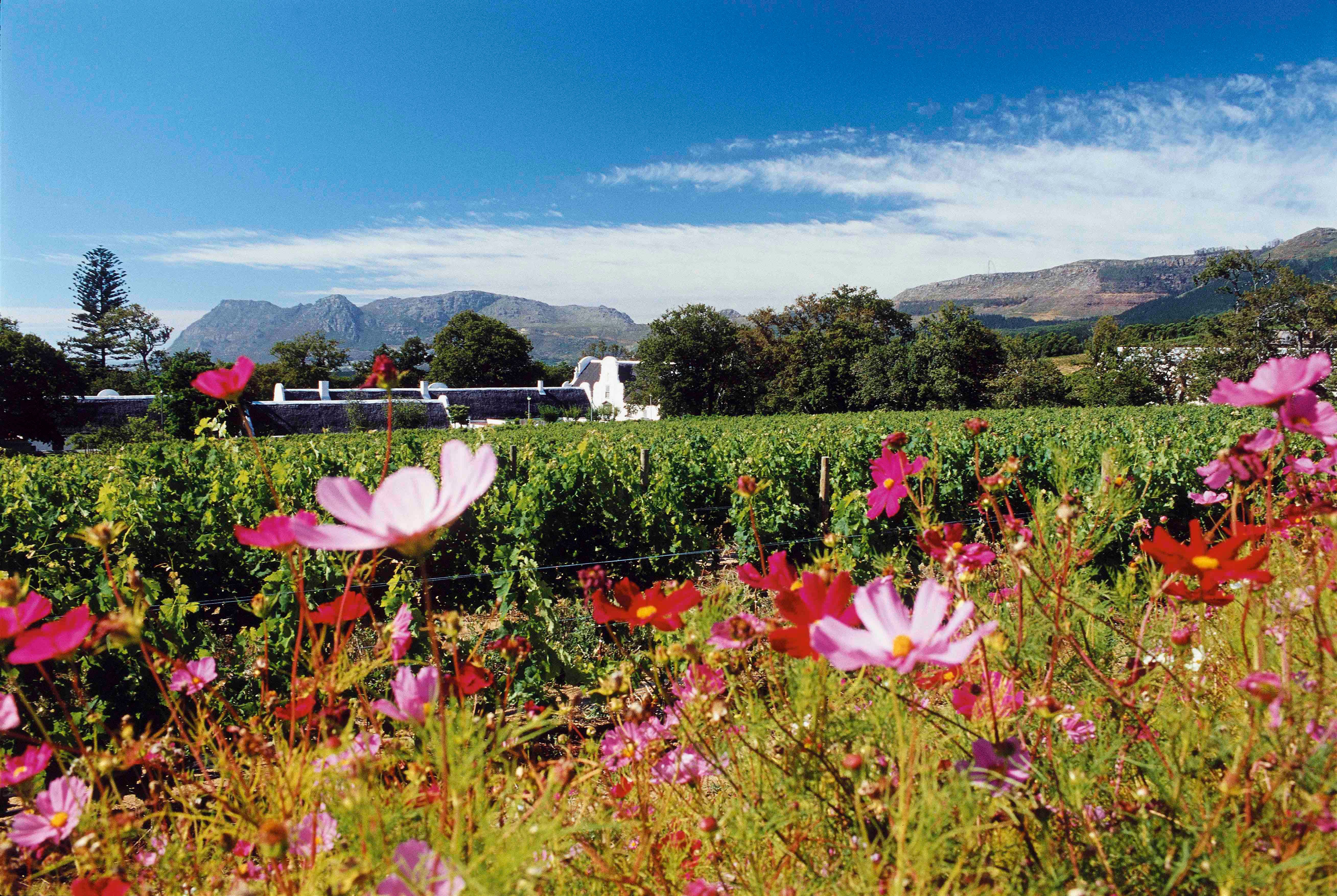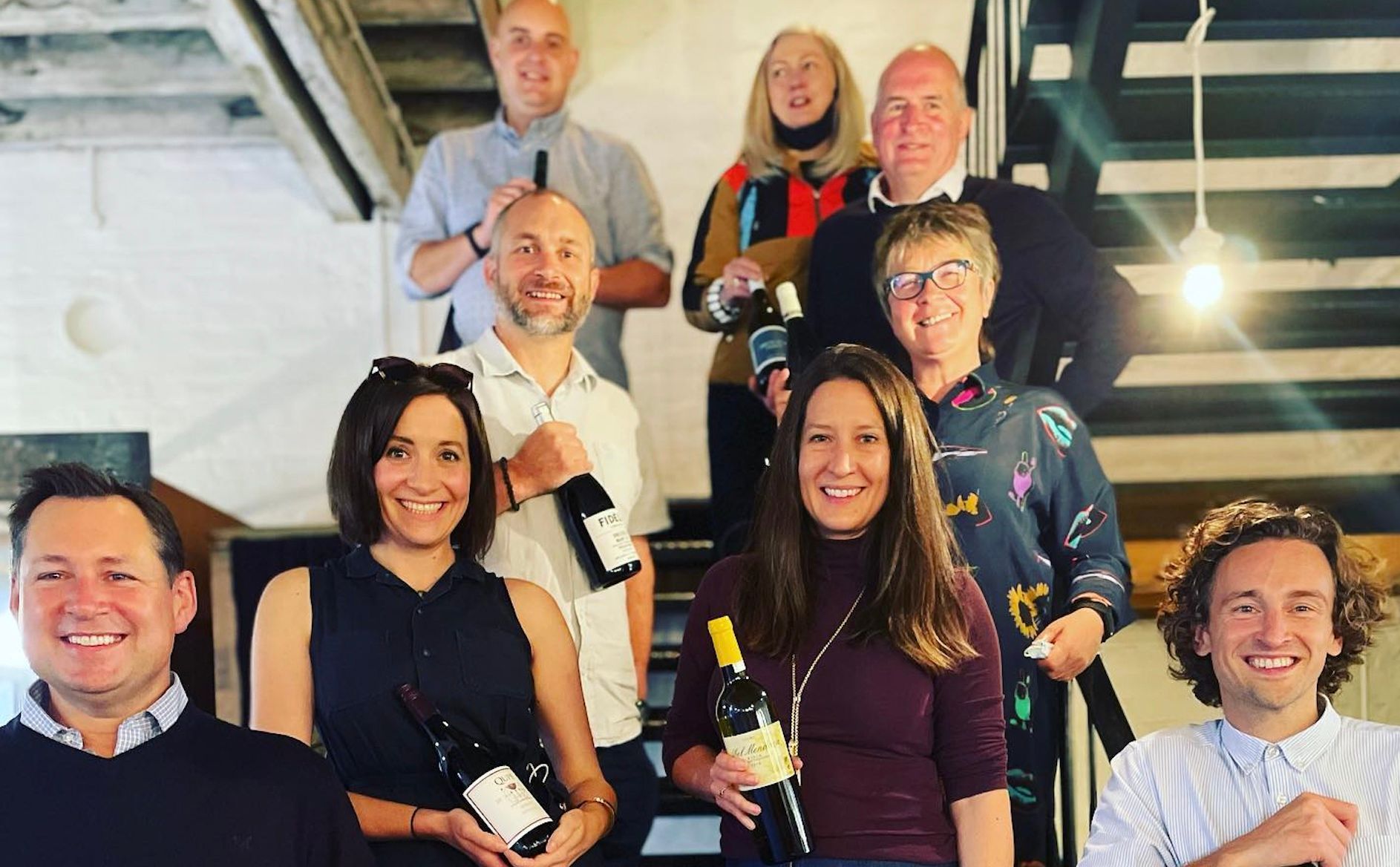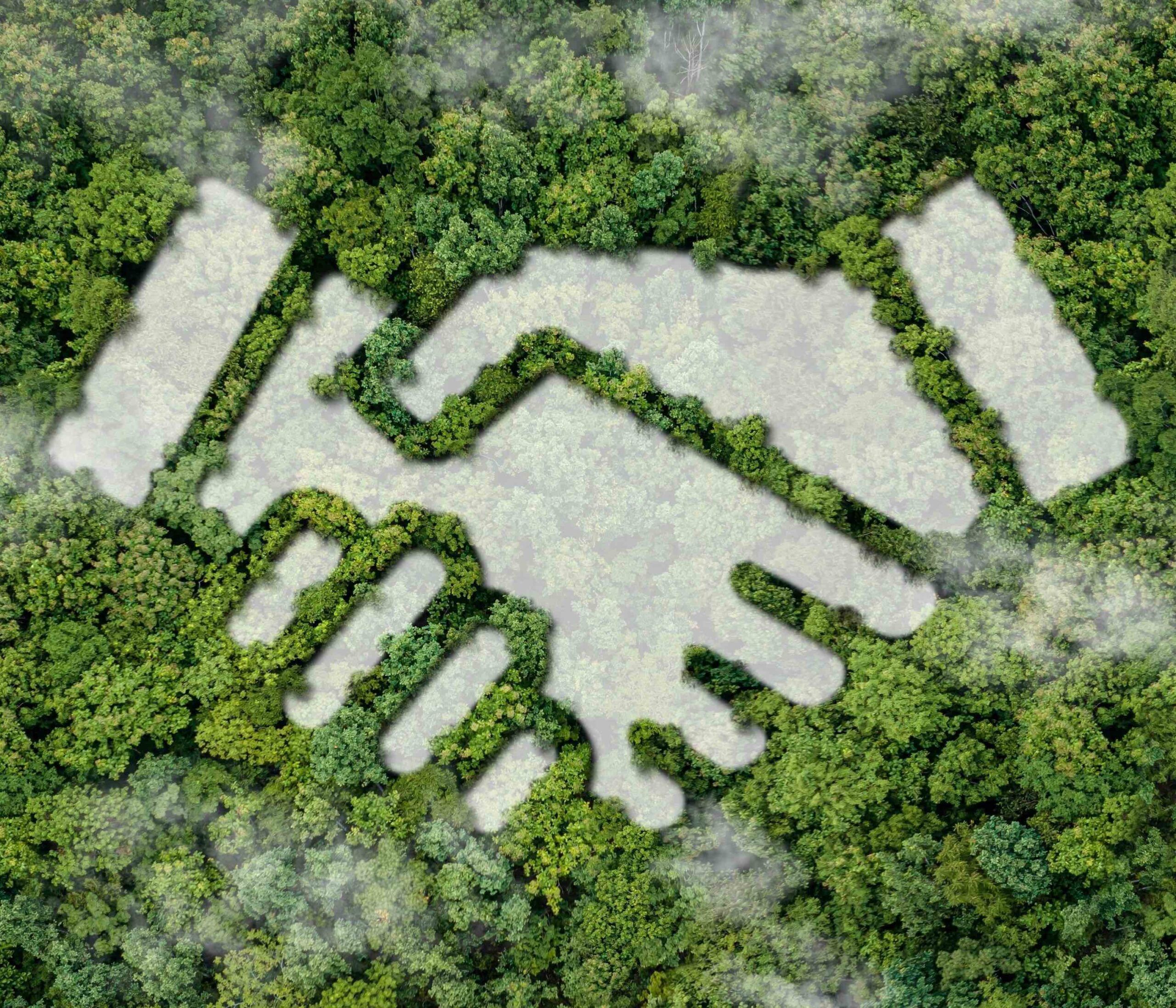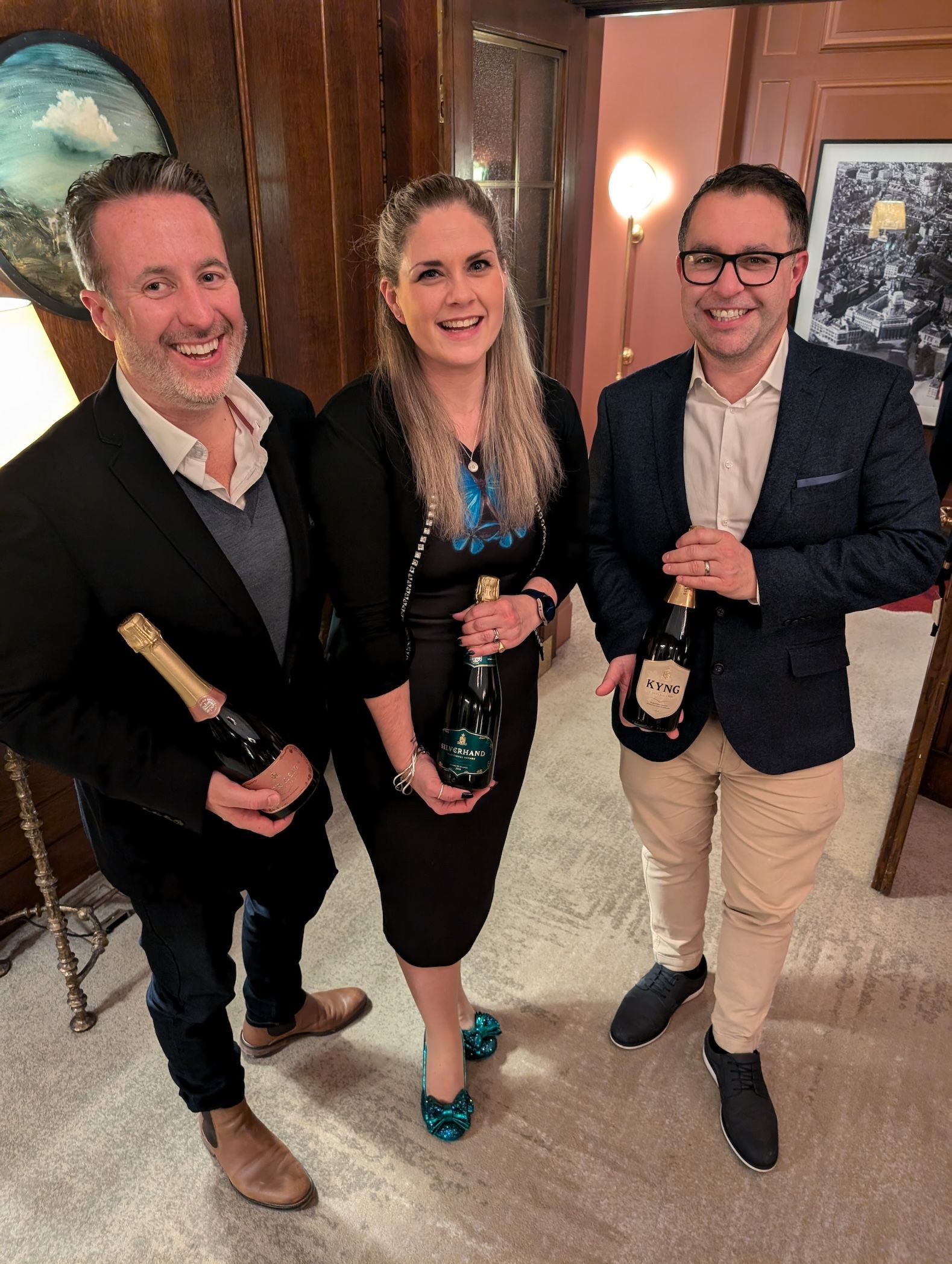Collaboration, co-operation and partnership are terms increasingly wafted around when it comes to how businesses and their suppliers and customers are looking to work together. Usually it refers to the commercial arrangements they all sign up to in order to efficiently buy and sell beers, wines, or spirits from each other. Relationships that can be easily broken depending on how commercially successful they are.
Sustainability partnerships, though, are different. They go way beyond the transactional and get to the heart of how any drinks company, retailer or hospitality business is committed to behaving and organising itself in the most sustainable and environmentally-friendly way possible. Break those partnerships and you may not have a business to manage at all.
That was the message that shone out bright and clear at last month’s Sustainability in Drinks conference and trade exhibition. The first of its kind to be held on that scale in the UK.
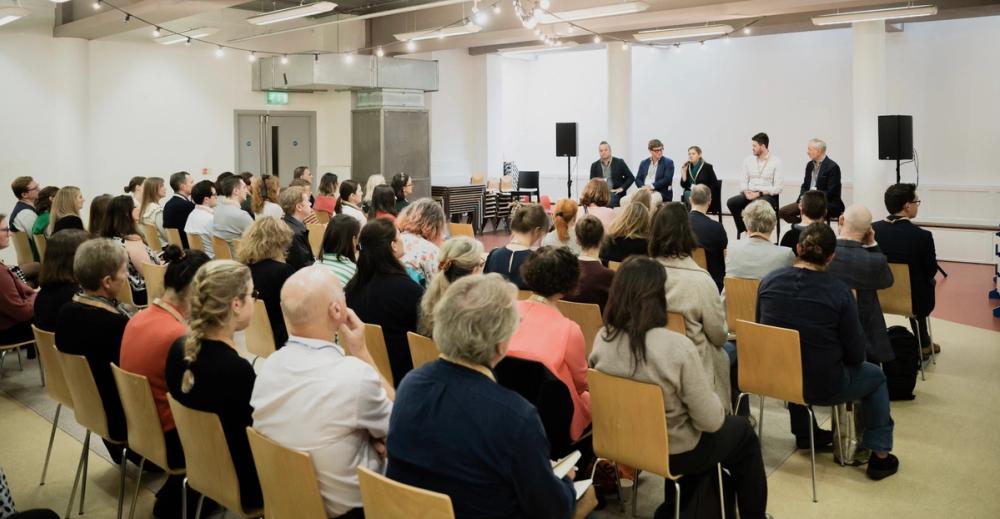
The first Sustainability in Drinks event saw panel after panel packed out as visitors came looking for help and support on their sustainability journey
Time and again speakers and panelists from a wide range of leading wine producers, importers, retailers and sustainability organisations, repeated the mantra that the only way to now succeed in business is to operate as sustainably and collaboratively as you can. The cost, if you like, of doing business in the drinks at all.
We are, after all, very much in this together. In fact, it was hugely rewarding to see the level of engagement across the two days of Sustainability in Drinks and the shared willingness for everyone to come together and tackle the issue as one. The challenge now is how do you bottle that enthusiasm outside of a two-day industry event.
Inspiring
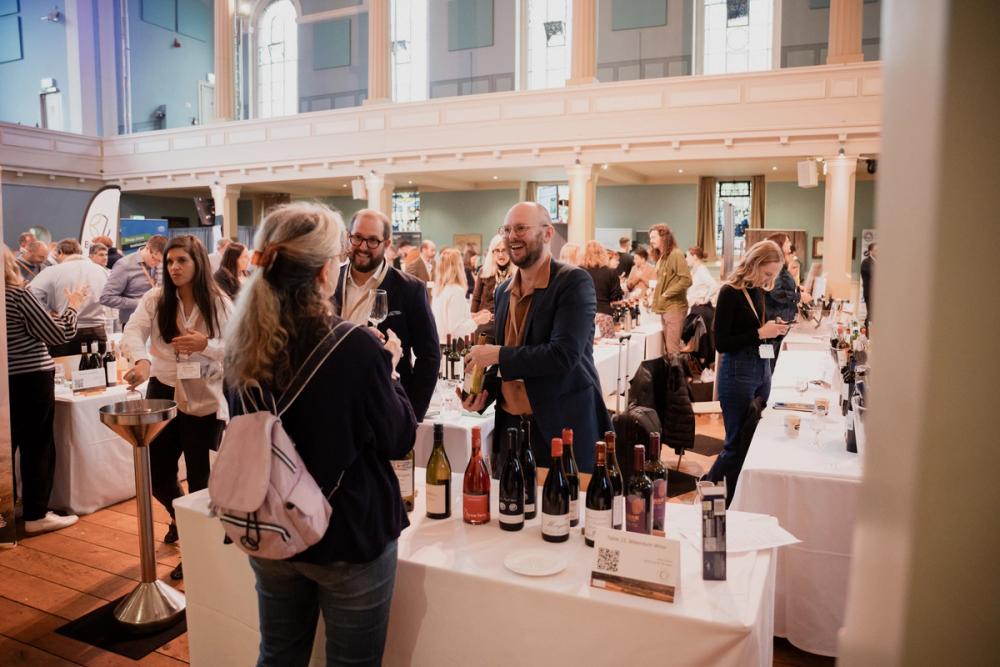
Sustainability in Drinks was split over two days between a conference on day one and a trade show and panel debates on day two
English wine producer, Tim Wildman MW of Lost in a Field, summed up the event’s unique atmosphere: “The sense of collaboration was inspiring.”
Flo Papougnot, head of PR and partnerships at The Uncommon, the English wine in a can brand agreed: “Chatting with other producers was a highlight. It definitely makes the whole journey feel less like you’re going at it alone.”
Wildman also appreciated the high level of talks aimed at the “grown ups” in the industry who are already taking sustainability seriously. He explained: “Environmental issues are complex, not only for the consumer but also for the trade. We all know we have to engage with these issues, but businesses often find themselves asking a number of questions that can seen paralysing. How do I even start? What do I have to do? What if I’ve got questions I’m too afraid to ask?”
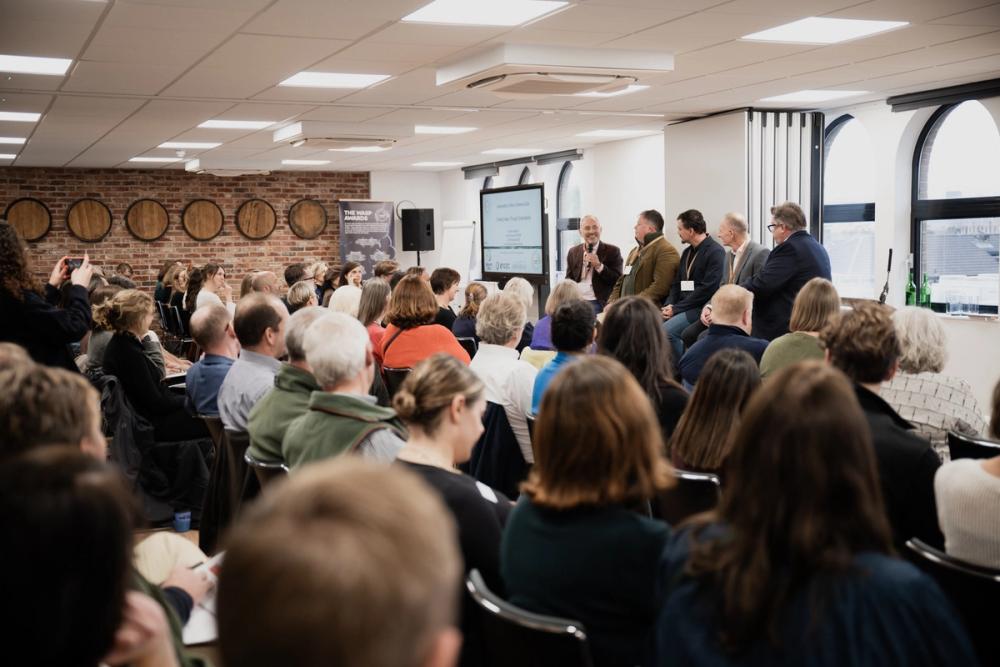
The conference held on the first day of Sustainablity in Drinks was the chance for "grown up" conversations to be had with the advice of members from the event's founding partners who took part in the panel debates: Wines of Alentejo Sustainability Programme; Encirc; Maison Mirabeau; Beyond Zero.
The conference, in particular, he argued, provided “a safe space for some really thorny, and often commercially sensitive, issues to be tackled”. “I felt on both days these very complex and difficult issues were being addressed head on, that the nettle was being grasped,” he said.
For that we all have to thank the openness and frankness of the speakers who took part and the senior industry figures who not only attended but were willing to share their insights and expertise too.
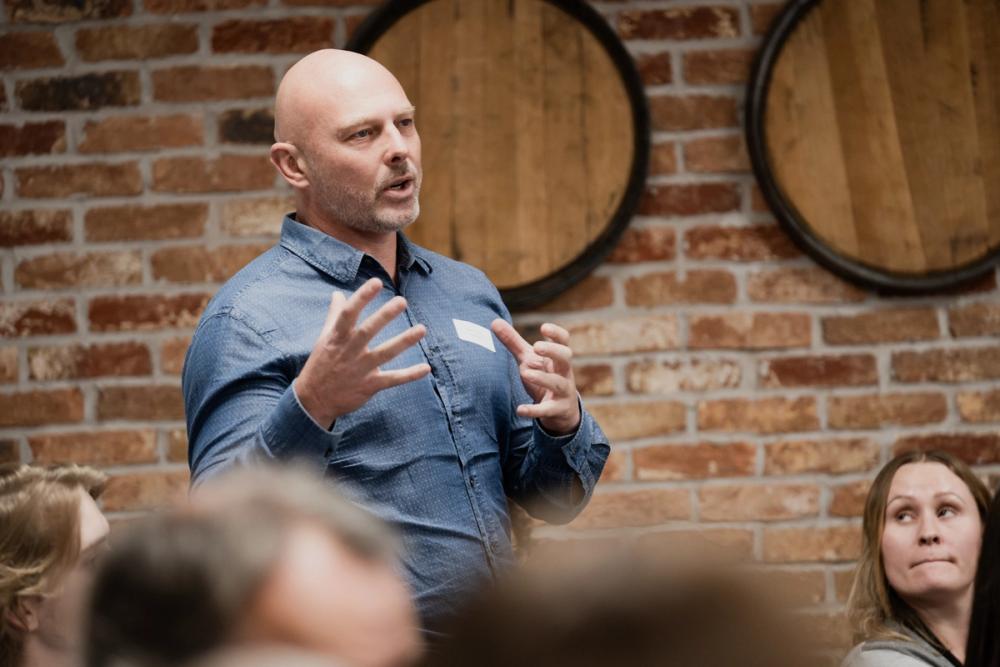
Waitrose's Barry Dick was able to share some of the lessons it has learnt introducing brave sustainability measures
Barry Dick MW, for example, Waitrose’s BWS sourcing and sustainability trading manager, was willing to admit the sustainability steps it has taken, like replacing its mini glass wine bottles with cans, might have received good publicity but were the easier “low hanging fruit” to tackle and the more difficult steps now lie ahead.
“But we learnt a lot about how positively our customers responded to it. It has given us the impetus to see what else we can do,” added Dick.
Judith Batchelar, director of Food Matters and former head of brand at Sainsbury’s, was able to set out some of the more stringent and demanding mandatory sustainability measures that are coming down the tracks that the drinks industry needs to be prepared for.
“Some issues you can only deal with collaboratively,” she warned pointing to the likely tightening of Scope 3 responsibilities for companies of a certain size.
Her biggest advice lay in how companies are currently handing their reporting and measuring of sustainability work and carbon capture. Rather than isolate and leave this as a separate function for the finance and accounting teams, she urged businesses to make “sustainability reporting” a key part of your management strategy and use the data and findings to help shape your company’s future.
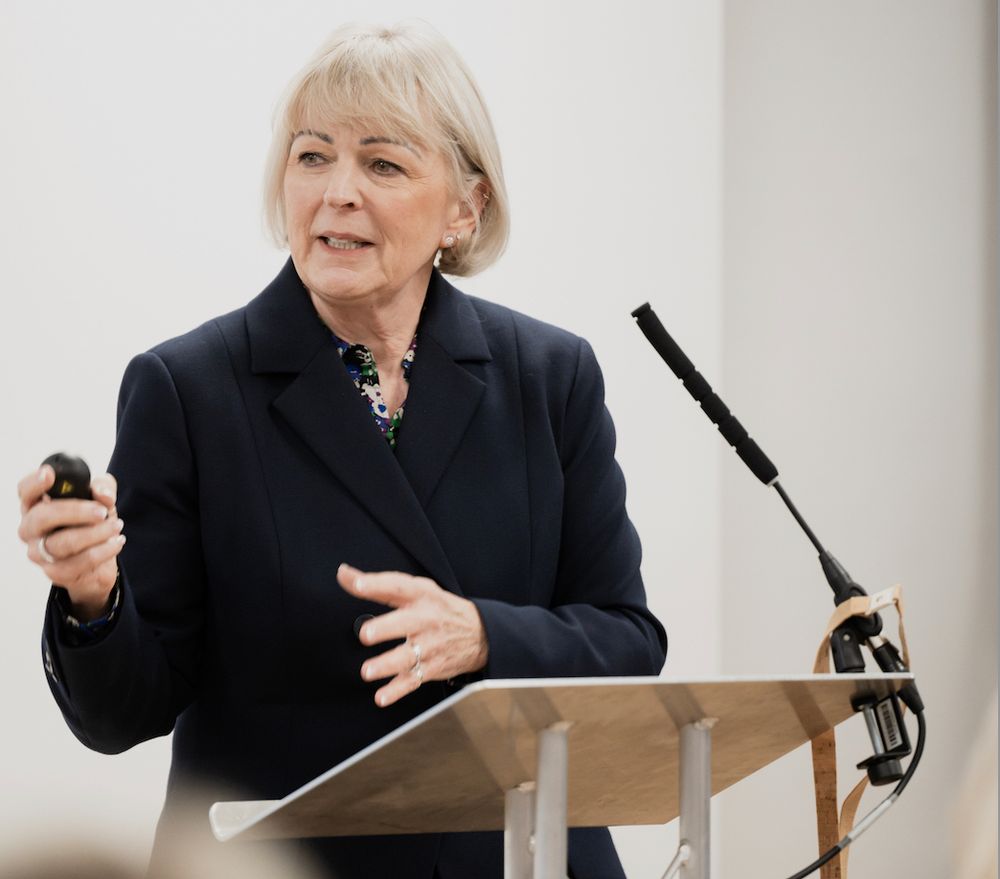
Judith Batchelar was able to share experiences and learning from other sectors on how best to introduce strict procedures to track sustainability measures
“Use this information to take reporting to the next level and help your managers make better decisions,” she said. “There’s huge value to be had here, but you need to work out what insights you can get out of it.”
The drinks industry should take the time to learn from the mistakes other business sectors have made and not repeat them, she added.
Profitable sustainability
But we have all got a long way to go before we can start talking about “profitable sustainability,” stressed Jancis Robinson MW.
In her hard-hitting keynote speech she repeated her message it was “crazy” to be shipping glass bottles all over the world when they can be bottled far more efficiently and sustainably in market. If you are going to use glass then don’t “dither” to put them in lighter weight bottles, she added, calling for “better quality wine in alternative packaging”.
We have to accept, argued Robinson, that as a sector the “days of seriously cheap wines are numbered”.
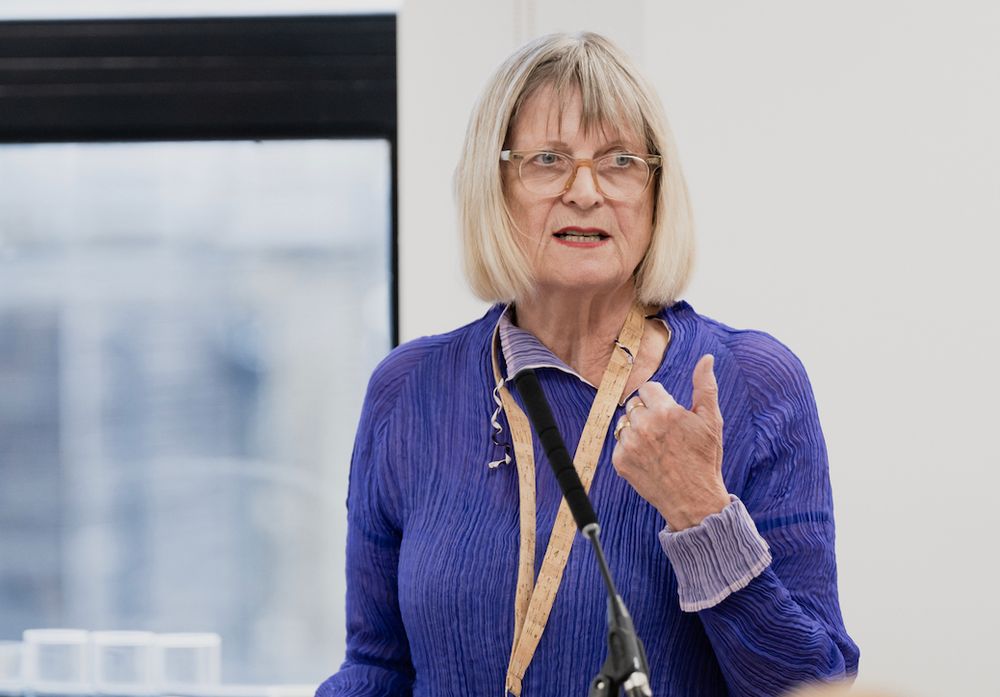
Jancis Robinson MW called for a "cultural change" in the industry to truly tackle sustainability
The industry needs a “complete cultural change” if it is to truly address the sustainable challenges ahead and requires companies “to get everyone in your teams to think about sustainablity,” she added.
It was a message that was picked up during the high quality panel debates during the trade exhibition and second day of the Sustainability in Drinks event.
Cultural shift
Phil Korbel, co-rounder of the Carbon Literacy Project, said that to date a lot of focus has been placed on “compliance” and following the sustainability rules when it comes to reporting and managing supply chains. Which is great up to a point. To really make a difference requires a “mass, impactful, cultural shift on climate action”.
Which means making “carbon literacy training part of your working culture” in the same way employers are required to take health and safety training. There is no one size fits all approach, but rather businesses need to determine what is right for them and then do everything they can to achieve it.
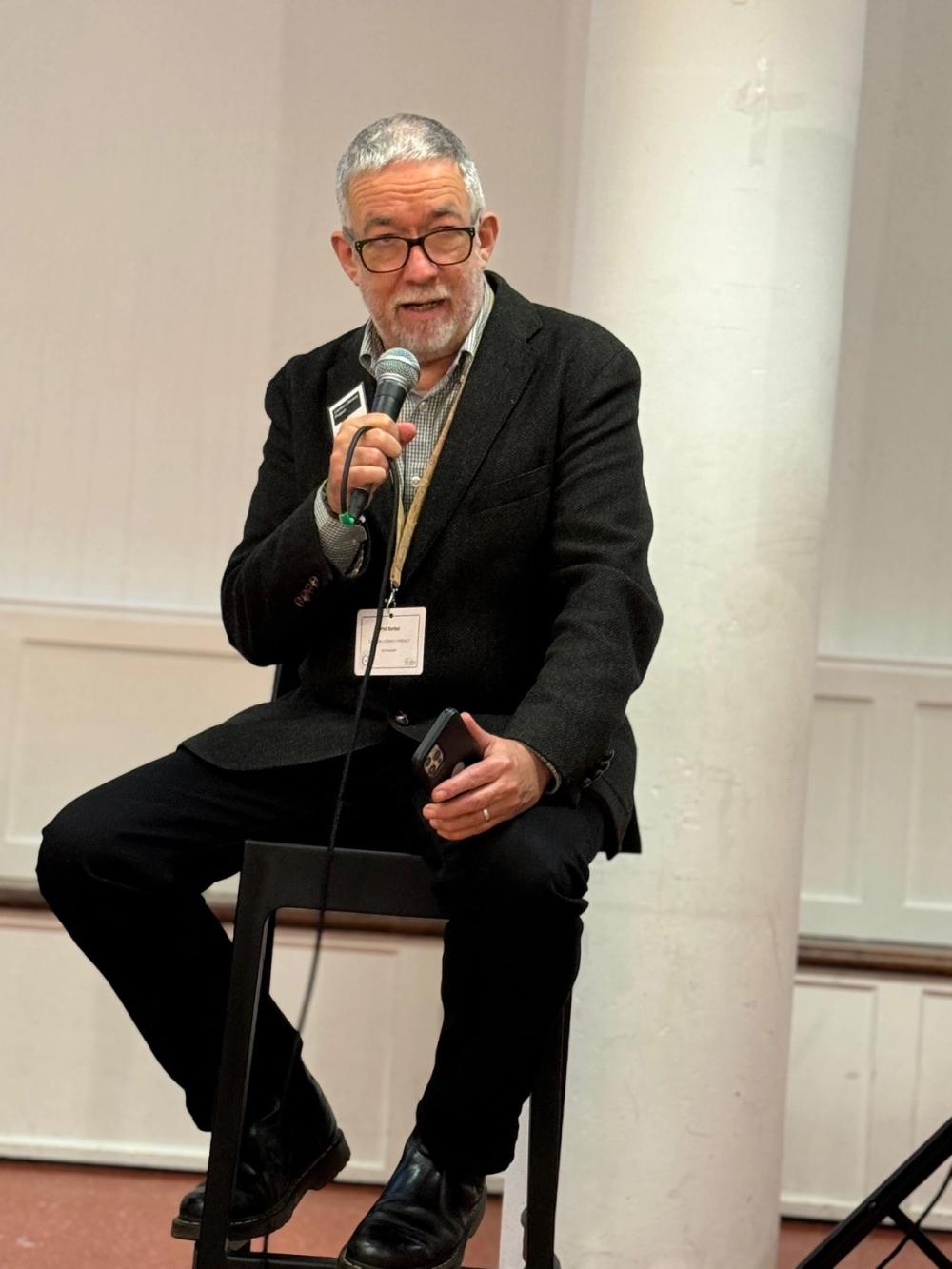
Philip Korbel of the Carbon Literacy Project says handling sustainability data can be like working with jigsaw pieces from different puzzles
He likened collecting Scope 3 sustainability data from suppliers like “collecting jigsaw pieces from different puzzles” when you don’t have a full picture of how to put them all together.and producers.
Anne Jones, sustainability consultant and one of the steering group members behind the Sustainability in Drinks event, also said it was important companies “don’t panic” their way into tackling sustainability and to try and take things “step by step”.
Look at what your direct competitors are doing and benchmark yourself against their sustainability standards. “Talk to them. Learn together,” she urged.
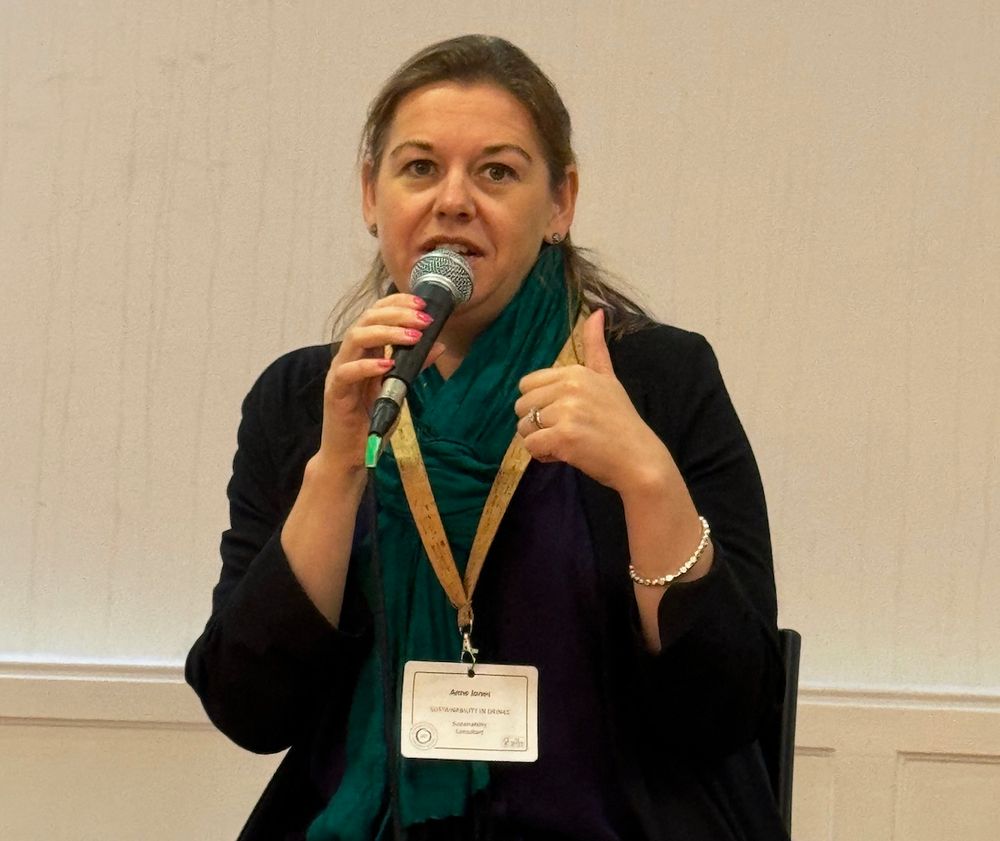
Anne Jones warned there were more stricter sustainability rules coming the drinks industy way
But as Scope 3 demands become more mandatory then the pressure on companies to act and report properly will be ramped up. “There is going to be more focus on line by line, SKU by SKU.”
Rosie Davenport, founder of Impact Focus, is a big believer in shared learning and if you are open about what you are doing, then other businesses are more likely to open up and be transparent about the steps they are taking. “Don’t be scared about putting your hand up,” she added as there is no competitive advantage to be had here.
Tracking and sharing data
Fran Draper, another steering group member of the event and carbon literate facilitator, said the drinks industry is in real need of published data that can be used to help all across the sector do things better and more effectively.
Cross-company training, though, is the best way to get everyone engaged so that they can see the direct benefits and impact it can have “as part of their job” and not just an abstract corporate target they can’t relate to. “It starts to become part of every decision you make and how you think.”
“It can be inspiring,” added Jones. “You can all share in that feeling of ambition.”
Korbel agreed: “Once you start, the positive impact will start to roll through a business.”

Laura Catena was able to explain the pressures that wine producers face to be sustainable
Laura Catena of Catena Zapata, who was at the event to primarily explain how and why it is introducing lighter weight bottles to its mainstream range of wines, summed it nicely when she said: “Doing good things is infectious. If you do something good, other people will follow.”
It’s a challenge the Wine Society has grasped with both hands, claimed director, Dom de Ville, with a series of measures up and down its supply chain. That is where 94% of its carbon footprint was being generated - in its supply chain - and it has to work hand in hand with its suppliers in order to fix that.
“Both sides have to see the benefits,” he said and it means the business has “become more selective about who we work with” and it needs to find partners willing to go on the “sustainability journey” together. Whilst also accepting some producers will be able to act faster than others.
“You need to understand your supply chain and your partners. You also have to help and support them,” he added, which might mean providing financial support.
But it has meant major retailers, like the Wine Society, have moved the number one procurement factor away from just price, to also include compliance to work together on a sustainability strategy.
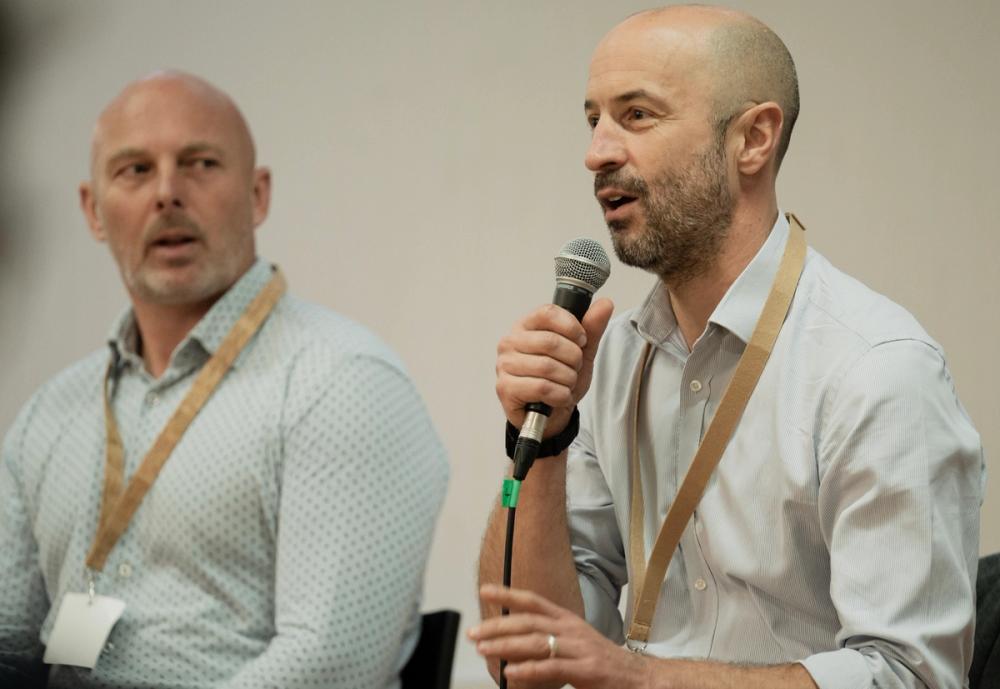
Dom de Ville of the Wine Society says it is having to take tough decisions on the producers it works with in order to be fully sustainable
“All the things we are asking come at a risk and we need to be taking on more of that risk, we need to pay more for that risk to the producer,” he added.
All about soils
Stephen Cronk, co-founder of Provence producer, Maison Mirabeau, was at the event in his capacity as trustee of the Regenerative Viticulture Foundation and spoke passionately about the work it is doing to put soil health at the heart of winemaking.
He was also able to share the work it has done at Mirabeau to become a B Corp business and how it has helped provide the framework and structure to make the right sustainability decisions. “It has been an amazing help to us.”
Jamie Hutchinson, chief executive of Cordon Technologies, that helps producers cut their pesticide use by at least 70%, says the industry needs to talk more about the financial value there is to being sustainable and “doing the right thing in the farm”. It is using, for example, AI-driven technology to help winemakers maximise the use and efficiency of every vine in a vineyard.
“We are using technology to farm more intelligently and effectively,” he said.
“It’s about having science based targets and measuring them,” stressed Chris Stroud, Europe manager at New Zealand Winegrowers.
Sustainability start-ups
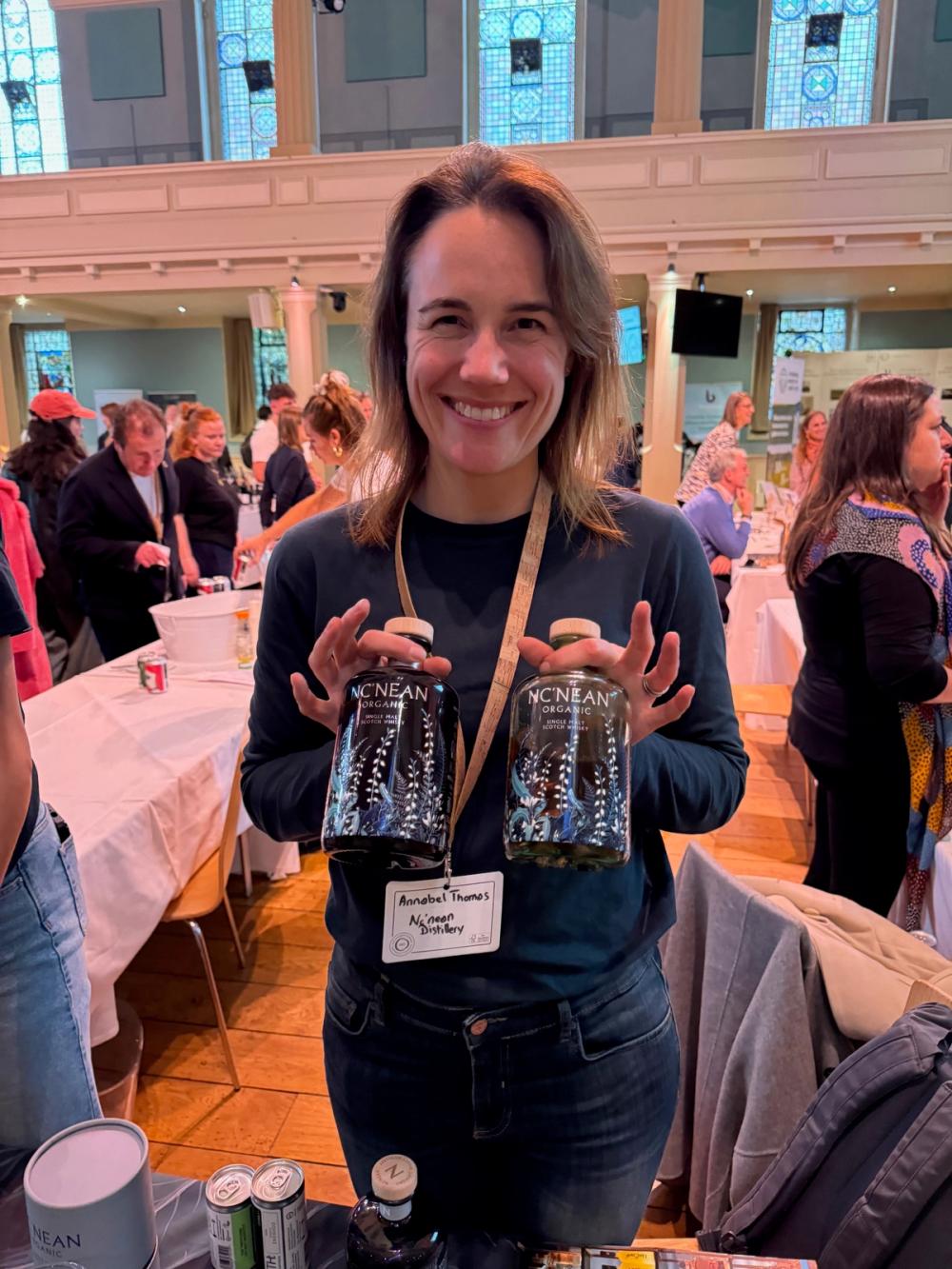
Annabel Thomas of Nc’Nean Distillery was one of a number of wine and spirits producers who took part in the trade event to show the steps they have taken to make sustainable drinks
Whilst the majority of drinks businesses are having to adapt existing business models to be more sustainable, it was interesting to talk to businesses at the event who had started out from scratch with a sustainability business plan like Scottish distillery, Nc’Nean Distillery.
Its founder Annabel Thomas says it set out from the beginning to follow a B Corp model and track Scope 3 emissions. Which she admits was a hard as a start-up dictating terms to its more established suppliers.
“It’s all about taking the first step,” she said, and taking your suppliers and customers on that journey with you. When it needed, for example, to build a new warehouse, which would result in a higher carbon output, it decided to be up front with its customer base and explain the steps it was taking and the long term sustainable reasons behind it.
Summary
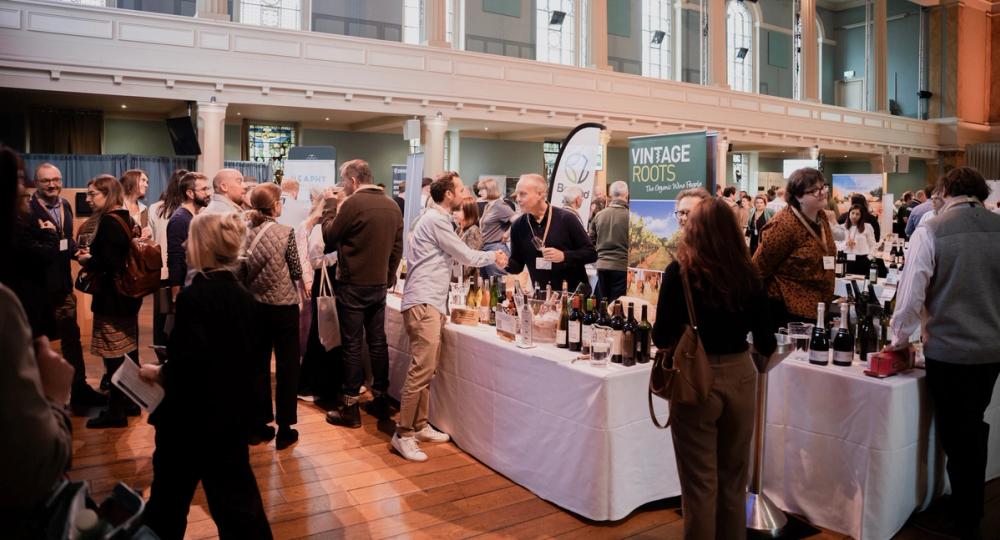
The trade show part of Sustainability in Drinks was a showcase of some of the best examples of producers and importers and what they are doing to tacke sustainability
The overall response and impact of the first Sustainability in Drinks event was overwhelmingly positive to both the standalone conference on the first day and the combined trade show and panel debates on the following day.
Most importantly it felt like a completely different wine event. There was a universal feeling of co-operation and sense that we are all in this together and are all here to listen, learn and share our individual experiences for a common good.
As Lance Pigott, director of Vintage Roots, said: “We came because we wanted to be part of it and thought it was important we were here particularly as we have got B Corp status.”
Graham Crawford, sales director, Oakley Wine Agencies, added: “It is great to be at an event that puts sustainability first rather than wine.”
Flo Papougnot at The Uncommon, said: “It’s fantastic to see sustainability take centre stage, rather than being treated as an afterthought. So many people in one room with a real thirst for sharing ideas. It’s clear we need more spaces like this to help navigate what can be a pretty overwhelming topic.”
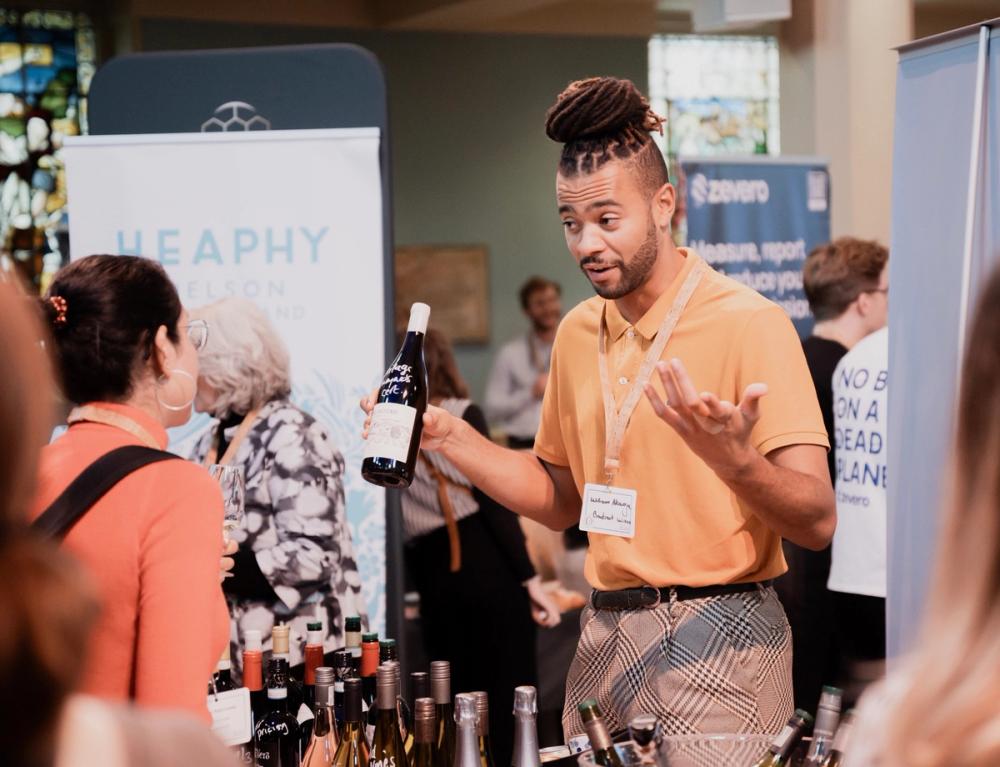
The event was a chance for importers, like Boutinot, to explain what sustainability measures they are taking
The issue of sustainability and how individual businesses respond to their own environmental and social impact is only going to increase as the level of mandatory reporting and assessment increases. That is what gives Sustainability In Drinks a unique position. It is the first of its kind to set out its stall and put together an event for the entire drinks industry and its supply chain to benefit from.
* To find out more about the Sustainablity in Drinks event go to its website here.
